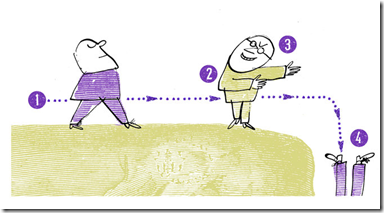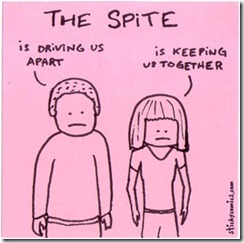Spite is good. Science agrees. Tim Martin agrees.
/The New York Times recently published a piece entitled Spite is Good. Spite Works. Research seems to indicate that human decency and cooperation require “a certain degree of so-called altruistic punishment: the willingness of some individuals to punish rule breakers even when the infraction does not directly affect them — challenging the guy who broke into the line behind you, for example.”
I have been known to act spitefully from time to time. I maintain an “I told you so” calendar, for example, and consider the words “I told you so” to be the best four words in the English language.
I may have even attempted to coin the phrase, “The best reason to do anything is spite.”
As you might imagine, I was thrilled to see the New York Times piece. It’s always nice to see that science is on my side.
Before you disagree, consider this enlightening story:
J D Wetherspoon is a well known, highly respected British pub chain.
Founded in 1979 by Tim Martin, the company owns over 900 outlets. The company also operates the Lloyds No. 1 chain and a number of Wetherspoon Hotels. It has become known for converting large, unconventional premises into pubs.
The J D Wetherspoon name comes from one of Martin's teachers in New Zealand who could not control his class, and told Tim that he would never succeed in business.
The man named his business out of spite.
It’s not hard to imagine that spite was probably a primary motivator in Tim Martin’s success.



